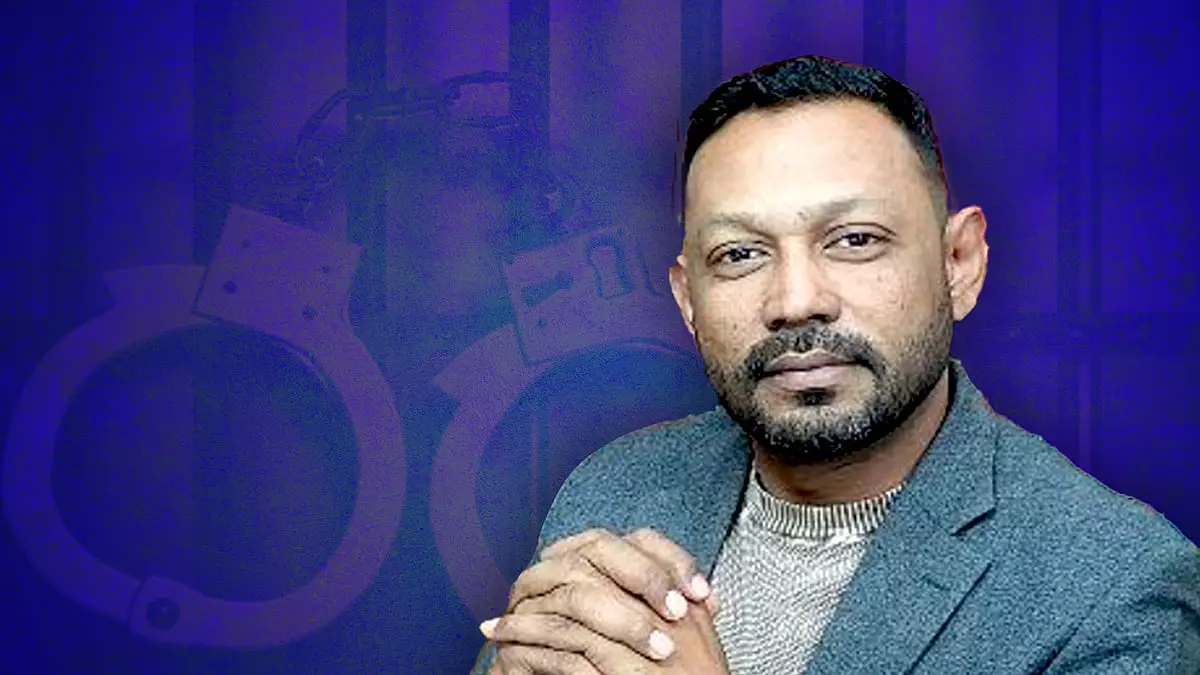The Assam government has come under heavy criticism following the arrest of senior journalist Dilwar Hussain Mozumdar, who was taken into custody by the state police late on Tuesday night after being detained for nearly 12 hours. On March 25, Mozumdar, the chief reporter at The CrossCurrent, a Guwahati-based digital news portal known for its investigative reporting, was arrested under various charges, including alleged violations of the Scheduled Caste and Scheduled Tribe (Prevention of Atrocities) Act. His arrest is widely being viewed as a blatant attack on press freedom and an attempt to silence critical reporting.
Arbitrary detention and arrest
As per multiple media reports, Mozumdar was covering a protest organised by the youth wing of the Assam Jatiya Parishad (AJP), which was demonstrating against an alleged recruitment scam at the Assam Co-operative Apex Bank (ACAB). The protest was directed at the involvement of key political figures, including Assam Chief Minister Himanta Biswa Sarma, who serves as the bank’s director, and BJP MLA Biswajit Phukan, the bank’s chairman.
While carrying out his journalistic duties, Mozumdar questioned the bank’s managing director, Dambaru Saikia, about the allegations. A video clip later released by The CrossCurrent shows Mozumdar attempting to engage Saikia, who then invited him to his office. However, once inside, Saikia allegedly asked him to convince the protesters to leave—a demand Mozumdar rightfully refused, asserting his role as an independent journalist. Shortly after exiting the bank premises, he received a call from the Pan Bazar police station, instructing him to report immediately. Upon arrival, he was detained without any explanation for nearly half a day.
During his detention, Mozumdar’s family had alleged that they were denied access to him, and his diabetic medication, along with iftar provisions during Ramadan, was initially withheld. It was only after repeated insistence from fellow journalists that his wife was allowed to meet him late at night. At around midnight, as per Hindustan Times, the police finally revealed that he had been arrested under the SC/ST (Prevention of Atrocities) Act based on an unspecified complaint. The arrest slip, given to his wife, lacked the complainant’s name and specific details of the alleged offence, further fuelling suspicions of a politically motivated crackdown.
Manufactured charges to suppress journalism
The police later claimed that a security guard at the bank, a member of the Bodo community, had lodged a complaint against Mozumdar for allegedly making derogatory remarks. The FIR reportedly cited a single sentence attributed to Mozumdar: “Boro jati hoi tumi besi kora” (being from the Bodo tribe, you do too much). This claim has been widely ridiculed as an excuse to criminalise a journalist for asking uncomfortable questions about alleged financial mismanagement at the bank.
The flimsy nature of the allegations, combined with the prolonged detention without justification, indicates that this is not about protecting any community but about intimidating the press. The selective application of the SC/ST Act in this case is particularly disturbing, as it appears to be a tool for silencing a journalist rather than ensuring justice for marginalised communities. This kind of misuse only serves to delegitimise important legal protections meant to safeguard oppressed groups.
Widespread condemnation and protests
Mozumdar’s arrest has sparked widespread outrage among journalists, civil society groups, and opposition political parties. The Guwahati Press Club held an emergency meeting condemning the arrest, with members wearing black badges in solidarity. Prominent journalists and activists have decried the Assam government’s actions as an egregious assault on press freedom.
Senior journalist Sushanta Talukdar pointed out that Mozumdar’s “biggest crime” was attempting to present a balanced report by seeking answers from the bank’s management. The Editors’ Guild of India issued a strong statement condemning the arrest, highlighting that such actions reinforce the growing perception that press freedom is under siege in India. The Press Club of India (PCI) also denounced the police’s refusal to inform Mozumdar’s family and colleagues about the reasons for his detention, calling it a grave infringement of constitutional rights under Article 19(1)(a).
Political leaders have also spoken out against the arrest. AJP president Lurinjyoti Gogoi called it an attempt to establish “Jungle Raj” in Assam, while the Assam Pradesh Congress Committee described it as a direct attack on press freedom. The North East Media Forum urged Chief Minister Sarma to intervene and prevent the misuse of the SC/ST Act to settle political scores.
A pattern of media suppression
Press freedom is not a privilege—it is a cornerstone of democracy, and its systematic erosion threatens the very foundation of civil liberties in India. The detention and arrest of Dilwar Hussain Mozumdar is a dangerous escalation in the Assam government’s hostility towards independent journalism. It sends a chilling message to other reporters: question the state at your own peril. If Mozumdar is not released unconditionally, it will set a troubling precedent where fabricated charges can be used to silence journalists, ultimately eroding democratic accountability.
The fact that Mozumdar had previously reported on irregularities at ACAB raises serious questions about whether this was a pre-planned action to silence a journalist who had become inconvenient for the government. Notably, earlier this month, the Assam Cooperation Department had ordered an inquiry into the bank’s alleged financial mismanagement following a complaint sent to the Central Vigilance Commission. Instead of addressing these allegations transparently, the government appears to be prioritising retribution against those who expose them.
Related:
